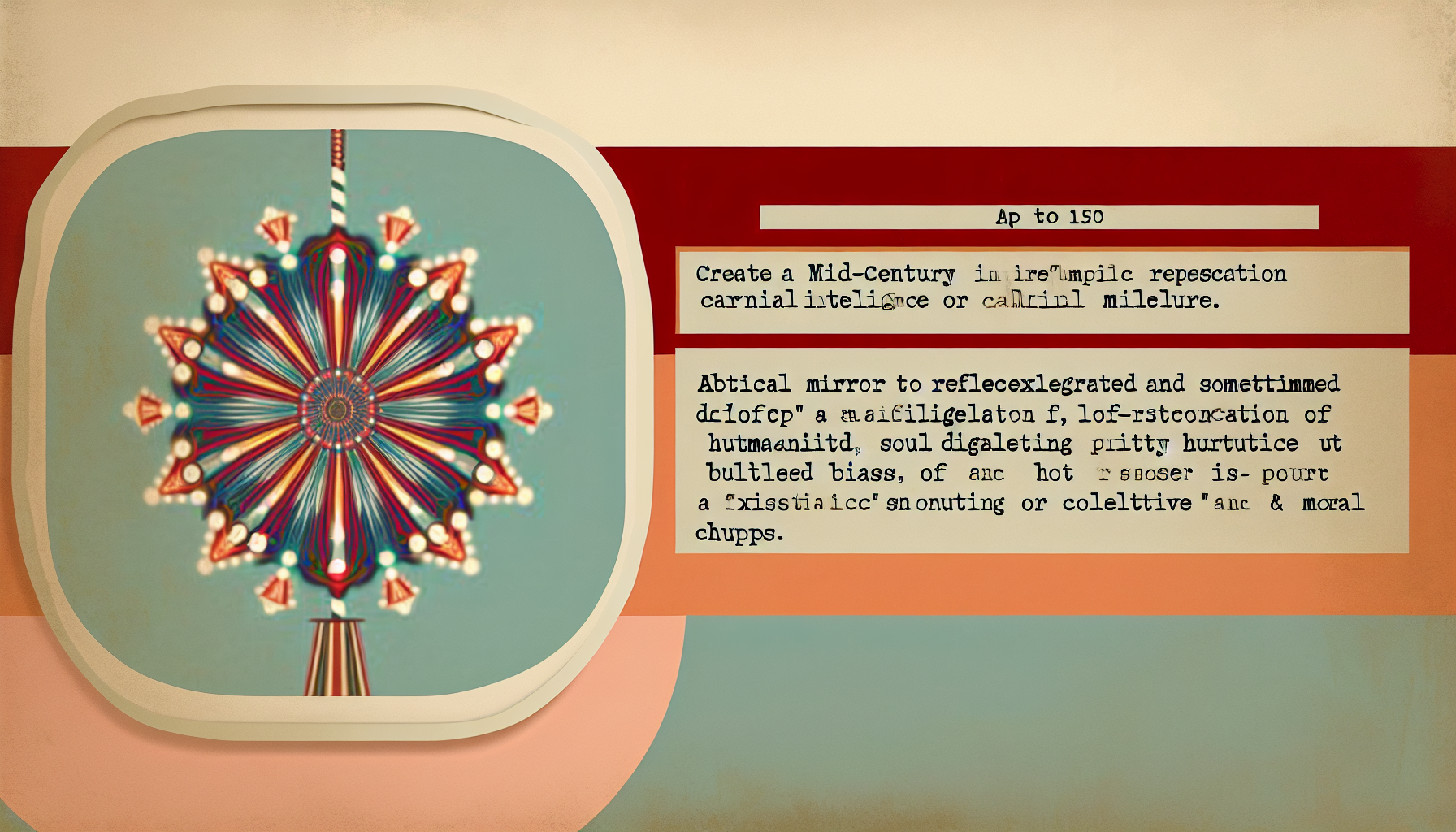When you gaze into the depths of artificial intelligence, something curious stares back at you—much like a carnival mirror reflecting an exaggerated, and sometimes unsettling, version of humanity. AI isn’t just a collection of complicated algorithms and intricate code; it’s a mirror held up to the human mind with all its biases and moral hiccups bundled in for good measure. It’s like holding up a funhouse mirror to our collective ethos.
AI as a Reflection of Human Bias
Let’s start with a little-known secret about AI: it’s not as objective as some might like to think. You see, artificial intelligence is built using data—lots and lots of data. This data, however, doesn’t just appear out of thin air. It’s collected, curated, and cleaned by us messy, imperfect humans. Whether we realize it or not, our biases seep into the datasets that are used to train AI systems. So when AI makes decisions, it often echoes the same biases that we humans harbor, albeit sometimes with a more robotic detachment.
Think of the AI applications in areas like hiring or criminal justice. If the data fed into these systems contains biases—perhaps skewed by historical inequalities—the AI will likely produce results that reflect those same biases. It’s like teaching a parrot to speak and then being surprised when it repeats the questionable jokes you once found funny.
The Ethical Dilemmas of AI
Now imagine AI developing the capacity for more general intelligence. As it begins to understand and interact with the world in more complex ways, the ethical dilemmas become even more pronounced. It’s like teaching a child the difference between right and wrong—but imagine the child has access to vast amounts of knowledge and computational power but zero common sense or empathy.
Our current systems work on the basis of rules we give them, but these are just human approximations of ethical behavior. The problem is that morality isn’t a simple set of rules. It’s a complex, nuanced landscape that even humans struggle to navigate. Expecting AI to flawlessly embody our moral codes is like expecting a Roomba to win a ballroom dancing competition. Technically possible with the right programming, but there’s a lot of stumbling around first.
The Role of Technologists and Philosophers
Given these challenges, you might wonder if there’s hope for a more unbiased and ethically sound AI. The answer is complicated, but it essentially boils down to collaboration between technologists and philosophers. While technologists are proficient at building the sophisticated systems, philosophers bring in the nuanced understanding of ethics and human values that can guide the development of more conscientious AI.
Imagine AI research as a dinner party, where technologists are the hosts providing food for thought, and philosophers are the guests questioning everything from the starter soup to the pièce de résistance. When the two come together, they’re more likely to serve up dishes that are not only palatable but also nutritious for society.
What Can We Do?
So what can you, dear reader, do to help ensure that AI doesn’t just amplify our worst flaws? First, stay informed about the ways technology affects your life. The more you know, the better you can advocate for systems that are fair, transparent, and accountable. Second, participate in discussions—whether at work, at school, or in your community—about the ethical implications of AI. These conversations are crucial for shaping policies and practices that guide AI development.
Finally, support and push for diversity in tech. The more diverse the teams designing and implementing AI, the better the chances that a range of perspectives will be taken into account, resulting in more balanced systems. Think of it as adding more mirrors in our funhouse to get a clearer picture of ourselves—a bit less wobbly, a bit more real.
In Conclusion
In the end, artificial intelligence is as much a reflection of us as it is an invention by us. It holds up a mirror to our strengths and weaknesses, forcing us to confront our biases and ethical dilemmas. While the path to mitigating these issues isn’t as straightforward as programming a computer or solving a mathematical equation, it’s a journey worth undertaking. After all, if we’re building the future, we might as well make sure it’s one we can all feel a little more comfortable looking at in the mirror. Well, maybe after we’ve wiped off the toothpaste stains.

Leave a Reply